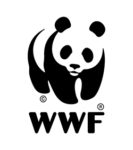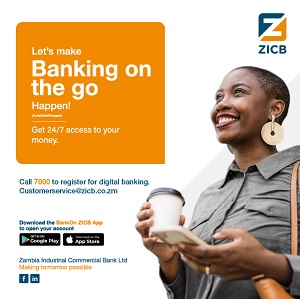
WWF Zambia Country Office
WWF Zambia is seeking the services of a national Gender Consultant to participate in a project development team for two projects for the Global Environment Facility and deliver a set of gender-related products to be used in the project development process.
1. Background
WWF-US as a Global Environment Facility (GEF) Agency is supporting the Government of Zambia, WWF Zambia and the International Crane Foundation (ICF) to develop two projects for presentation to the GEF for endorsement by the GEF Chief Executive Officer as part of the Eighth Replenishment Cycle (GEF-8). The two projects will be designed in support of Zambian government priorities, and in accordance with WWF and GEF standards, and are as follows:
- The Kafue Flats Climate Resilience and Adaptation Project (or “KaF-Adapt”), to be funded through the Least Developed Countries Fund (LDCF
- The Kafue Flats Wildlife, Habitat, Health and Livelihoods Project (or “KaF-Wild”), to be funded through the GEF Trust Fund, as a country project under the global Wildlife Conservation for Development (WCD) Integrated Programme.
The Gender Consultant will participate, together with other national and international consultants, and staff from WWF-US, WWF-Zambia, the International Crane Foundation (ICF) and the Government of Zambia in a joint Project Development Team (PDT). The PDT will be responsible for the development in parallel of both the KaF-Adapt project and the KaF-Wild project and will guide the joint project development process based on an approved workplan. The two projects will have complementary objectives and will be designed for implementation in the same geographical area – the Lower Kafue Basin – and over the same five-year period.
2. Objective of Consultancy
To develop a Gender Analysis and Action Plan, as well as other gender-related products and elements to be used in the project development process – for both the KaF-Adapt project, and the KaF-Wild project in Zambia.
The main objective of the Gender Analysis is to conduct research and collect gender-specific data, including intersectionality dimensions[1], that will lead to gaining knowledge on roles of women and men in the project area, the decision-making processes among women and men at the community level, control over the management of natural resources and the types of resources, and access to land by women and men in the project area. This also includes the situation in the country and specific to the project area with regard to gender-based violence (GBV) and sexual exploitation, abuse and harassment (SEAH), and the laws/policies/regulations relating to gender, women’s empowerment and prevention of GBV/SEAH that may potentially create an enabling environment for mainstreaming gender and social inclusion in the project. This is in view of identifying gaps and solutions to improve women’s active participation in conservation and promote more equitable management of and benefits from the use of natural resources among women and men in the context of the planned projects.
The main objective of the Gender Action Plan is to identify specific opportunities to address gender gaps, and promote gender equality and women’s empowerment in the context of each project’s objectives. This will include identifying gender-responsive measures for the project outputs and activities and developing gender-sensitive indicators and sex-disaggregated targets for the project results and monitoring and evaluation (M&E) framework.
3. Tasks and Responsibilities
1. Participate in fortnightly joint Project Development Team meetings online (or at WWF Zambia office in Lusaka).
2. Support the Stakeholder Consultant in identifying stakeholders for consultation and engagement on the project design, including women’s groups and people from other vulnerable groups, and designing a consultation strategy that will be gender-sensitive and elicit the necessary engagement by women as well as men.
3. Accompany two field missions in the Lower Kafue Basin project site, visiting a wide range of stakeholders in the seven chiefdoms of the Kafue Flats Game Management Area, and one possible field mission to the Nkala Game Management Area.
4. Hold focus group discussions with women and men (taking into consideration the potential need to hold meetings with women and men separately) in the project sites, and support active involvement of women in stakeholder consultations as appropriate.
5. Meet with other stakeholders in Lusaka and online, as required, such as relevant government ministries and entities that focus on social and/or women’s affairs.
6. Conduct desktop and field-based research and interviews to identify, understand and describe the position of women in Zambia and in the project sites, including gender differences in relation to (i) access to resources (revenues, employment, land, etc.); (ii) roles, responsibilities and utilization of time; (iii) norms, beliefs and perceptions; (iv) laws, policies, institutional practices; and (v) decision-making processes.
7. Identify gender-differentiated impacts and risks in relation to climate change and human wildlife conflict in the project site, i.e. the Lower Kafue Basin (including Kafue and Nkala Game Management Areas).
8. Identify constraints and opportunities for the full participation of women in Community Resource Boards and Village Action Groups, producer associations and cooperatives, and other community structures in the project site.
9. Identify any existing initiatives to mainstream gender in natural resource management and sustainable livelihood initiatives.
10. Identify economic activities of interest to women and men in the project site, as well as gender-differentiated opportunities for new nature-based livelihoods.
11. Formulate recommendations for the two linked gender-responsive projects, including two sets of potential outputs and activities, as well as two sets of indicators and targets for the project results and monitoring and evaluation (M&E) framework.
12. Support the lead consultant to develop relevant sections of project description and theory of change addressing gender dimensions, for both projects.
13. Reinforce all Project Development Team knowledge and capacity for the design of a project that is both sensitive and responsive to gender issues.
4. Expected Outputs
A. Gender Analysis and Action Plan for KaF-Adapt and KaF-Wild (35-40 pages):
- Part 1: A report detailing baseline gender dynamics[2] and the status of women in the context of the project and project site, including constraints and opportunities in relation to: (i) access to resources (revenues, employment, land, etc.); (ii) roles, responsibilities and utilization of time; (iii) norms, beliefs and perceptions; (iv) laws, policies, institutional practices; and (v) decision-making processes, including in Community Resource Boards, Village Action Groups, producer associations and cooperatives.
- Part 2a: Analysis of gender-differentiated impacts and risks in relation to climate change in the project site, including the impact of drought and water scarcity intensified by climate change on women’s domestic responsibilities and business activities; and the identification of climate-resilient and nature-based livelihood opportunities for women and men.
- Part 2b: Analysis of gender-differentiated impacts and risks in relation to health and disease, human wildlife conflict, poaching and the illegal game meat trade in the project site; and the identification of governance mechanisms and nature-based livelihood opportunities for women that could mitigate some of these risks.
- Part 3: Identification of gender-responsive measures that can be incorporated into the design of both projects (addressing gender gaps, gender equality, women’s empowerment, opportunities and entry points), within existing draft activities and through additional activities (with approximate budget costings for the latter); with clear identification of any measures that would:
- Close gender gaps in access to and control over natural resources
- Improve women’s participation and decision-making
- Generate socio-economic benefits or services for women.
- Part 4: A set of gender-related indicators for each of the two projects, to track the results of the gender-responsive measures proposed, with indicative baselines, targets, means of measurement and verification; also including gender-sensitive or gender-disaggregated targets for general project activity indicators as relevant, for inclusion in the project results framework, and monitoring and evaluation (M&E) framework.
5. Skills and Experience
The consultant should:
- Be resident in Zambia
- Hold a university degree in gender studies, development, social sciences, environmental sciences or similar
- Have proven experience in gender-focused assessment, analysis, project design or evaluation; and experience engaging and consulting with various communities;
- Have previous experience working in Zambia and good comprehension of the local context of the Lower Kafue Basin;
- Provide examples of previous similar work accomplished, submitted with the application;
- Be fluent in spoken and written English.
Additionally, it would be advantageous to have:
- Proven experience in community-level work on climate change adaptation, wildlife conservation or community-based natural resource management;
- Knowledge of local languages spoken in the project site.
6. Management of Work
The work will be home based, using own laptop and internet connection, with mostly online meetings, and optional travel to meetings in Lusaka at own cost. For consultation missions, ground transport and local accommodation (when required) will be arranged and costs covered by WWF Zambia.
The Gender Consultant will report to the Wildlife Programme Lead in WWF Zambia, while the Lead Consultant and the WWF GEF Agency Project Manager will together assess the quality of all deliverables, and will approve deliverables for payment.
Additional technical guidance will be provided by the Project Development Team, who will support on Zambian government policies, and WWF and GEF standards. The Consultant will also coordinate closely with key staff from WWF Zambia, the International Crane Foundation and other partners as required.
The breakdown of deliverables, expected timing, and payment structure is shown below:
Deliverables
Due date
Payment structure
1. Inception Report, including detailed work plan
2. Field Mission Report, including key points from stakeholder consultations and women’s focus groups
Anticipated in late May to mid June 2024 20%
3. Draft Gender Analysis and Action Plan for KaF-Adapt and KaF-Wild
16 August 2024 40%
4. Final Gender Analysis and Action Plan for KaF-Adapt and KaF-Wild
4 October 2024 40%
7. Submission Requirements
All candidates interested in conducting this assignment on a consultancy basis should submit, no later than noon (Zambia time) on Wednesday 17 April 2024, a detailed application including:
- An up-to-date curriculum vitae detailing the applicant’s experience in relation to the topic of the consultancy
- A covering letter, summarizing a) how the applicant’s skills and experience equip them to undertake the consultancy; and b) the applicant’s proposed approach to the work
- A financial proposal, in the form of a total figure in USD, to be calculated by multiplying the applicant’s daily rate in USD by the number of days the applicant estimates it will take to deliver on the proposed activities within the proposed timeline (Note: costs of field missions to be covered by WWF)
- A sample of a previous gender-related assignment completed by the consultant.
All applications should be emailed to [email protected], with the reference “Gender Consultancy for WWF Zambia GEF 8 Projects”.
[1] The concept of intersectionality describes the ways in which systems of inequality based on gender, race, ethnicity, sexual orientation, gender identity, disability, class and other forms of discrimination “intersect” to create unique dynamics and effects.

